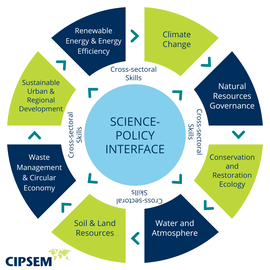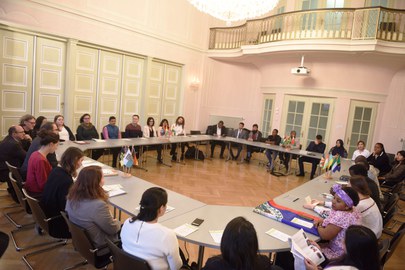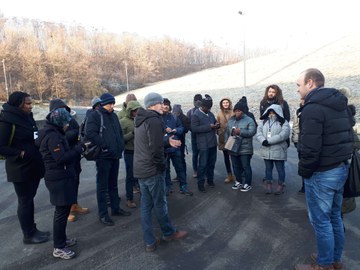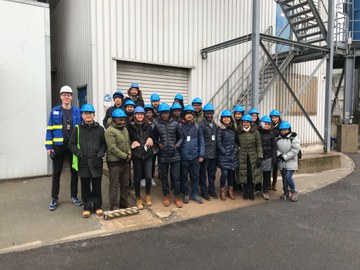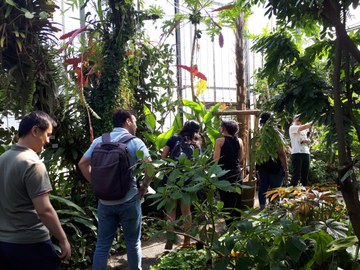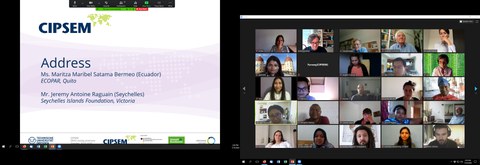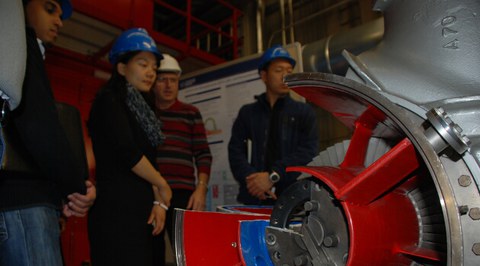44th UNEP/UNESCO/BMU International Postgraduate Course on Environmental Management for Developing Countries
Duration: 13 January - 15 July 2021 (online course)
Motivation
The Sustainable Development Goals (SDGs) were a remarkable advancement when adopted by the United Nations in 2015. For the first time, the world committed towards a broad spectrum of common goals ranging from climate action to sustainable economic growth, from life below water to sustainable cities, from ending hunger and poverty to responsible consumption and production, and from reduced inequalities to inclusive industrialisation. The Agenda 2030 is a clear recognition that the preservation of our biosphere depends on the sustainable stewardship of planet Earth.
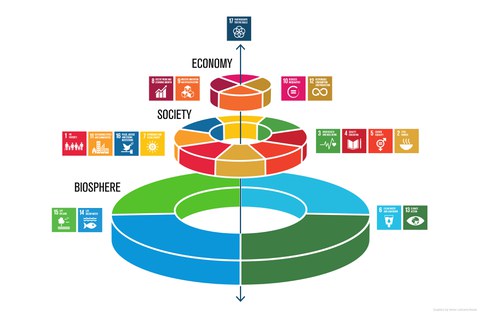
Biosphere foundation for global sustainability
In support of the SDGs, the UNEP/UNESCO/BMU 6-month course follows an integrated and interdisciplinary approach covering the field of environmental management. The curriculum is organised in modules comprising issues of conservation and restoration ecology, water and atmosphere, soil and land resources, sustainable urban and regional development, waste management and circular economy, renewable energy and energy efficiency. An overarching science-policy interface frames all disciplines.
Moreover, all participants will train skills of fundamental, cross-sectoral relevance such as policy advice and project management in the context of developing countries, communication across disciplines and participatory government practices, as well as understanding geo-information and basic German language skills.
The overall approach is to blend academic knowledge with local, traditional and professional expertise for finding practical and practicable solutions that can be implemented and eventually contribute to large-scale systemic changes and fundamental redirections in people-planet relationships that can have an impact at magnitudes that match the challenges of our time and are essential for accomplishing the SDGs.
The lectures are given by professors of Technische Universität Dresden as well as experts from various national and international institutions. A multitude of excursions are also part of the course to illustrate environmental problems and exemplify successfully integrated environmental management practices. Participants are required to carry out a profound research project on a specific environment-related subject and present the results of this work in a symposium at the end of the course.
Objectives
Participants acquire the ability to develop interdisciplinary strategies for sustainable development and to take appropriate measures for environmental protection that takes ecological, socio-economic and cultural aspects into account.
Target groups
This course is particularly designed for decision-makers of public governance and administration both at the national and local level requiring an overall-competence in environmental matters. To be eligible, candidates need to originate from and work in developing countries, including newly industrialised economies. Applicants also need to have at least two years of professional practice in the field of the course, for a mutually beneficial exchange of experiences. A first university degree (BA, BSc, e.g.), adequate communication skills in English language and the nomination by the delegating institution are mandatory, too.
Download the overview brochure for the UNEP/UNESCO/BMU course program.

